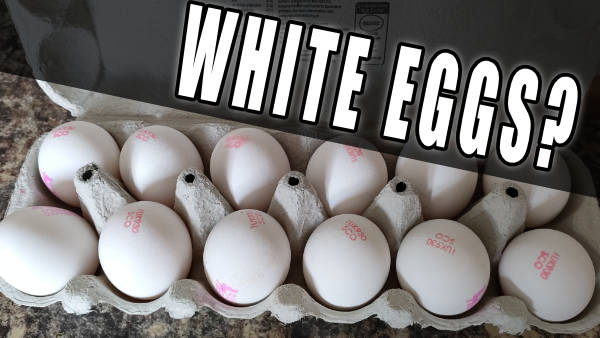If you’ve ever cracked open a box of eggs in the UK and found them to be white, you might have been puzzled. After all, the image of eggs we often have in our minds is that of brown ones.
Contents
Don’t worry; you’re not alone in your curiosity. We recently bought eggs from Tesco which were white and I was worried about eating them, so did some thorough research.
So in this guide, I’ll explain why you have eggs with white shells, all of a sudden.
Whether you buy them from your local supermarket or local shop in the UK, they’ve been a rare sight, and now they’re making a comeback!
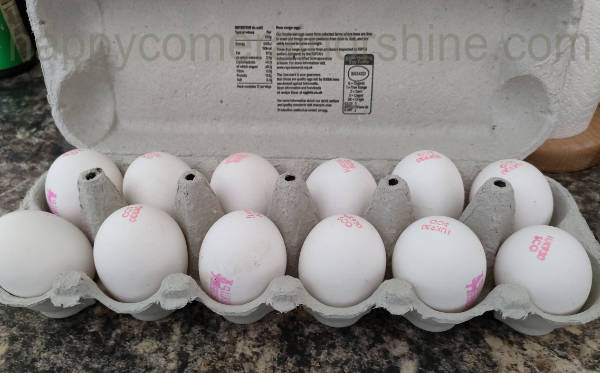
The Brown Egg Standard
For many Brits, brown eggs are the standard, and you may be used to seeing them in your local supermarket. We ourselves have been brought up with eggshells being brown.
These eggs have been the dominant choice for decades. The preference for brown eggs grew in the late 1970s and continued into the 1980s.
It’s not that brown eggs are superior in quality, but rather that misconceptions and marketing played a significant role.
Are Brown Eggs Better Than White?
One of the main misconceptions that led to the decline of white eggs was the belief that they were of lower quality than brown eggs. Some people even thought that white eggs were artificially bleached, which was far from the truth.
The truth is that the color of the eggshell has nothing to do with its nutritional value or taste. It’s purely a matter of the breed of the chicken that lays the egg.
White-feathered chickens with white earlobes typically lay white eggs, whereas red-feathered chickens with red earlobes lay brown eggs.
Are White Eggs OK To Eat?
White eggs are absolutely safe to eat!
Both types of eggs are subject to the same rigorous food safety standards, ensuring that they are free from harmful contaminants and safe for consumption in the United Kingdom.
So, go ahead and enjoy white eggs with confidence, just as you would with their brown counterparts. And they are just as yellow inside!
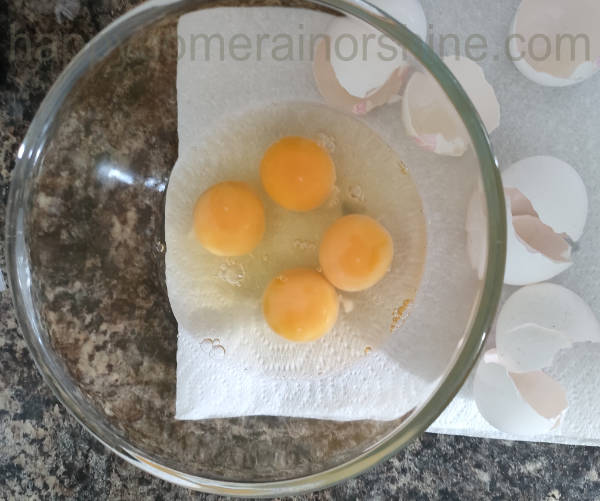
The Return of White Eggs in Tesco
Fast forward to more recent times, and the pandemic has brought about changes in our eating and cooking habits. With more people staying at home and doing more home cooking and baking, the demand for eggs has skyrocketed.
To meet this surge in demand, Tesco, one of the UK’s leading supermarket chains, reintroduced white eggs to its shelves in 2020 after a 40-year hiatus.
Previously, white eggs were primarily destined for restaurant use, including fast-food chains like McDonald’s. They had fallen out of favor in the late 1970s when misconceptions about their quality and alleged bleaching spread.
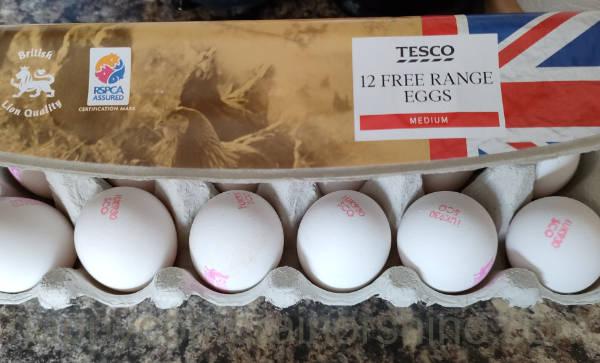
So Why Are My Eggs White?
So, why are white eggs back in the spotlight? It’s a combination of factors:
- Increased Home Cooking: The COVID-19 pandemic led to a surge in home cooking and baking. People were buying more eggs to whip up their favorite recipes, leading to a boost in demand.
- Successful Trial: Tesco conducted a successful trial run of white eggs during the lockdown, and the response was positive. This encouraged them to continue offering white eggs to their customers.
- Agricultural Benefits: White hens, the ones responsible for white eggs, tend to be more docile and lay eggs consistently for a longer period. This has agricultural benefits as it ensures a more stable egg supply.
Are White Eggs Rare?
In the UK, white eggs are still relatively rare. Out of approximately 40 million egg-laying birds in the country, only around 250,000 to 300,000 of them produce white eggs.
These eggs are typically used by the restaurant industry and in egg processing for food manufacturers, hotels, and restaurants.
Where to Find White Eggs?
Tesco is now the go-to place to find white eggs in the UK. They offer white free-range eggs at the same price as their brown counterparts, making them accessible to everyone.
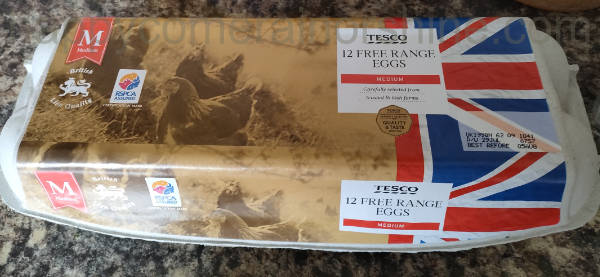
Final Thoughts
The color of eggshells is a fascinating aspect of the world of poultry. The genetics of the chicken, influenced by breed and inheritance, primarily dictate whether the eggshells will be white or brown.
While brown eggs are often associated with organic and free-range farming, eggshell color doesn’t significantly affect the nutritional value or taste of the eggs.
So, the next time you crack open a white egg in the UK, know that it’s down to the ever-evolving world of food and consumer choices. Enjoy your eggs, no matter what color they are! And they taste just the same.
